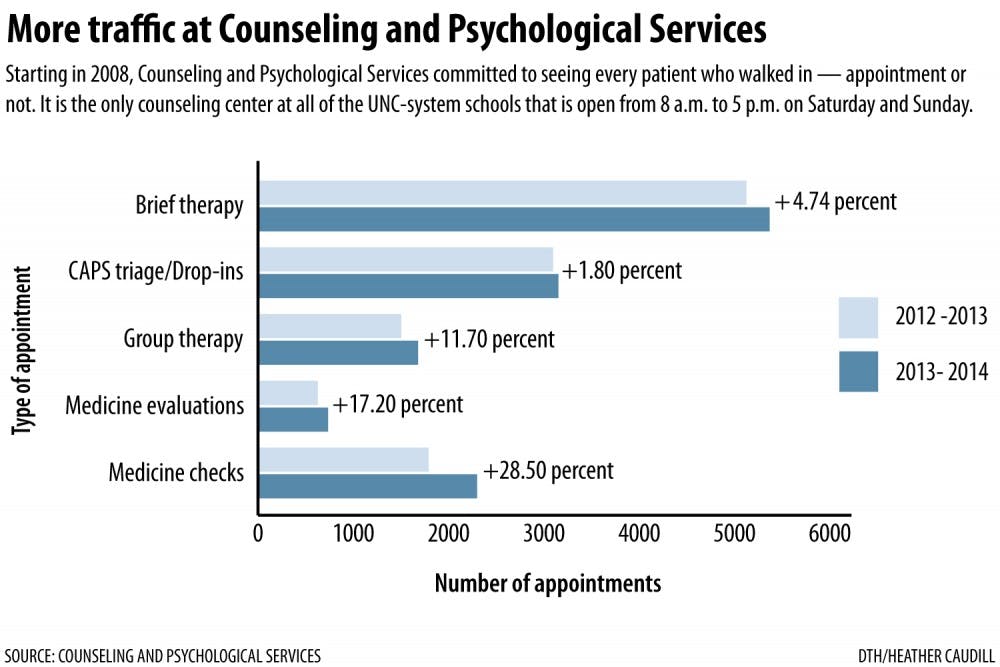Since 2008, CAPS has made an effort to see every student who walked in the door.
Previously, students had to wait up to two weeks for an appointment or were put on a waiting list until the end of the semester.
“Once we made that change, our numbers jumped almost 15 percent and now have gone up about 4 or 5 percent every year,” said Allen O’Barr, the director of CAPS.“The numbers just keep climbing.”
In the 2013-14 academic year, 243 more students met with a CAPS counselor for short-term therapy than in the year before — a 4.7 percent increase.
Group therapy at CAPS increased by 11.7 percent in the 2013-14 academic year from the year before. In that same year, evaluations for medication at CAPS increased by 17.2 percent, and checks on medication increased almost 30 percent.
O’Barr said there are a number of reasons for the growth. Depression and anxiety increase in fast-paced environments, and he believes people aren’t equipped to deal with the added stress.
“While information speed is moving at an exponential rate, we’re biologically adapting at a linear rate, if not a flat rate,” O’Barr said.
After working at UNC for more than 20 years, he said he’s noticed the stigmas surrounding mental health are subsiding.




